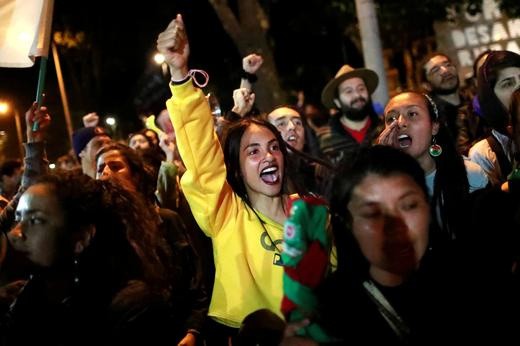Latin America Ranked 2nd as the Most Unequal Region in the Entire World

An article published in 2017 had talked about the imbalance or inequality of the total of Latin America despite its continuous drop in the past few years. The article had also pointed out the incident with the massive gender inequality in the region. It also discussed its effects on the youth and how it can be resolved by the region.
In a 2018 article, it was stated that the significant wealth inequality in Latin America is what's causing the region to reach optimum economic development.
In the past 20 years, the region had reduced its cases of poverty. Regardless, the region is still experiencing wide-spread protests and violence.
According to a reported issued by the United Nations Development Programme, the definition of inequality had shifted to a new meaning. The report had defined inequality is not completely about income but the insufficiency of equity, environmental maintenance, and improvement, technological gaps, and educational gaps.
According to the Director of UNDP Luis López-Calva, inequality is connected with the economy's growth and that many goals concerning this have not been met. Other concepts that inequality is connected with are segregation, insufficiency of the mobilization of society, and insufficient representation in politics.
Latin America gets the second spot as the most unequal section in the entire globe. The top spot in sub-Saharan Africa. These records are true despite the significant drop in the total inequality in Latin America for 25 years until 2015.
According to the report by UNDP, multiple countries with a relevant amount of human development indices are subscribed to broadband providers which are growing fifteen times faster than other countries with lower indices.
The report had suggested that the policies created by a country should be implemented before or during birth. This includes investing in the learning and health of that nation's children.
In the past few weeks, nations like Colombia, Ecuador, and Chile had been encountering multiple protests from its citizens regarding the inadequacy of each nation's response to its people's needs.
Bolivia is one of the nations that had recently joined UNDP as one of the countries with high human development. Despite this growth with other Latin American countries, upon taking into consideration the effects of inequality in each country, they all fell in the ranks.
According to the economist Marcelo Neri, the average revenue, average health, and average education of Brazil compared to the average for each of its citizens are at great variance.
Marcelo Neri is an economist who heads the Getulio Vargas Foundation University's Social Policy Department. He also said that Brazil is one of the first countries in Latin America that started the widespread protests in the region. Brazil's current economic and social disorder is a scary preview of the other nations experiencing similar events.
Argentina and Uruguay are categorized by the UNDP to have "very high human development". They are joined by the country of Chile. Chile is ranked the highest in Latin America. After considering the inequality indices of Chile, it ranks lower than Uruguay.
Subscribe to Latin Post!
Sign up for our free newsletter for the Latest coverage!

















